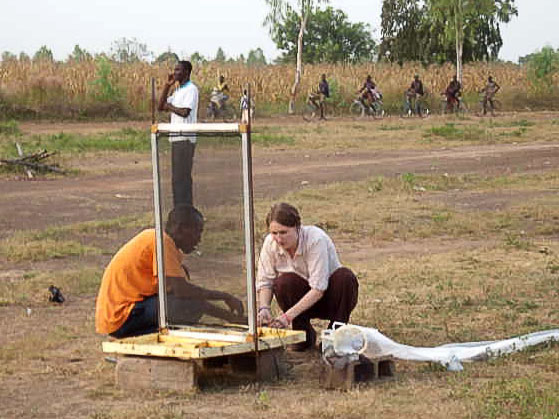
Coinciding with Fairtrade Fortnight, Jeremy Haggar, department head of Agriculture, Health and Environment at the Natural Resources Institute (NRI) was invited to speak today at the Twin-Fairtrade conference 'Make Climate Change your Business, Concerning Solutions for Smallholder Supply Chains'.
The conference was intended to engage like-minded businesses in an open and challenging debate on the links between smallholder supply chains and sustainable business models.
Jeremy was joined by a range of business leaders across Fairtrade supply chains, including UK retailers and manufacturers, and producers from Africa, Latin America and Asia.
His presentation focused on a study he is undertaking with Twin that examines ecosystem service projects funded by companies that specialise in well-established Fairtrade product groups, coffee and cocoa. Ecosystem services are defined as those which support life, regulate the environment, provide products or meet cultural or aesthetic needs.
The study, funded by the National Environmental Research Council (NERC) looks at how Fairtrade companies have supported the environmental policy of a Nicaraguan coffee cooperative, reforestation for sustaining cocoa production in Ghana, and mitigation and adaption to climate change in Peru.
A number of best practices were identified as an outcome of the project, including that initiatives should be closely aligned with the environmental needs and aims of producer organisations, interventions should seek to engage with local policies that may support or hinder overall aims, and scientific criteria are needed to assess whether the desired ecological impacts are being delivered.
The study revealed that although companies engage in sustainability certification and offset their carbon emissions, their main concern has become the threat to sustaining the supply of coffee and cocoa arising from climate change and environmental degradation.
Hanneke says "Increasing smallholder capacity is important, and to improve access to finance it is crucial to focus on risk mitigation, with a holistic approach. We do this under FARMAF with the aim that the lessons learnt through the project in Burkina Faso, Tanzania and Zambia will be transferable to other African countries."
For more information about the study: Ecosystem Services REPORT
More information about the conference: http://www.twin.org.uk/news/make-climate-change-your-business
Natural Resources Institute and Fairtrade: http://www.nri.org/news/2012/76-natural-resources-institute-and-fairtrade

